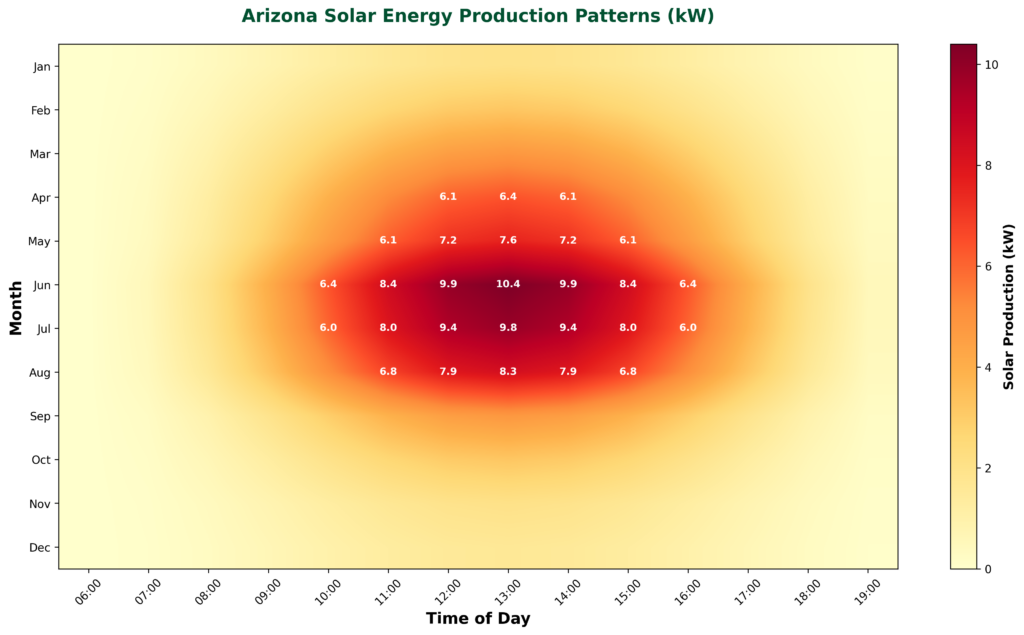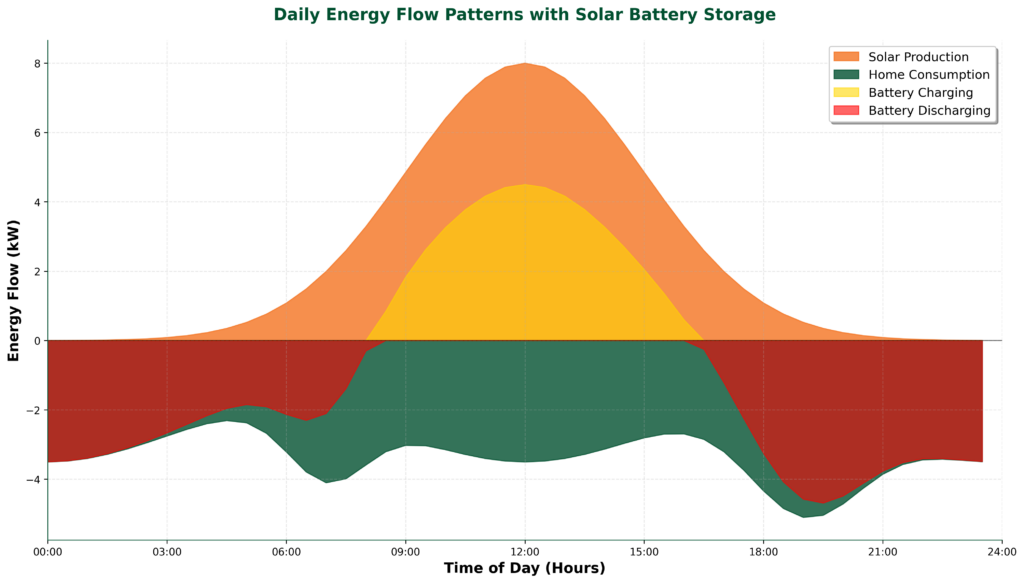How do Solar Battery Storage Systems Work for AZ Homeowners?
How do Solar Battery Storage Systems Work for AZ Homeowners?
Updated: September 2, 2025
In today’s world, where energy demand is skyrocketing and environmental concerns are more pressing than ever, solar energy emerges as a beacon of sustainable and renewable energy. However, the intermittent nature of solar power, with its dependency on sunny days, has often been a stumbling block in its path to becoming a primary energy source for many. Enter the solution: battery storage systems. This comprehensive guide delves into the myriad benefits of integrating batteries with your solar panels, from ensuring an uninterrupted power supply to achieving energy self-sufficiency and even selling surplus power back to the grid. Remember, at Solar Topps, we can always assist you with a Residential or Commercial quote for Solar Energy.
At Solar Topps, we serve the entire State of Arizona. Even though we are located in Downtown Phoenix, we serve the main Metro Area with cities like Scottsdale, Paradise Valley, Mesa, Chandler, Buckeye, Peoria, San Tan Valley, and many others!
How does Solar Battery Storage Work?
Solar battery storage systems are a great way to make the most of the energy your solar panels generate. Instead of sending the extra electricity straight back to the grid, these systems store it for later use. During the day, when the sun is shining, your panels often produce more power than you need. That surplus energy gets stored in the battery so you can use it in the evening, on cloudy days, or even during power outages. A Solar Inverter helps manage the whole process by converting the electricity from your panels (DC) into the kind your Arizona home uses (AC) and back again to charge the battery. It’s a simple, efficient setup that keeps your energy supply steady and sustainable.

Benefits of Energy Storage Solutions
Energy storage solutions, such as solar batteries, provide Arizona homeowners with greater control over their energy usage. They help reduce reliance on the grid by ensuring access to stored power during peak hours or outages. These systems contribute to cost savings by utilizing stored energy when electricity prices are higher.
Advancements in Solar Technology
Modern solar technology has significantly improved the efficiency and reliability of energy systems. Innovations in solar panels and inverters have made it easier for homeowners to produce and store clean energy. These advancements ensure optimal performance, lower maintenance costs, and a longer lifespan for the entire system.
Reliable Uninterrupted Power for Arizona Residents
The integration of batteries with solar panel systems is revolutionizing how we harness and utilize solar energy. By storing excess energy, energy that is not consumed immediately by your home or business, batteries ensure that your property remains powered during power outages, when the utility is charging very high kWh rates or when the sun has set. This seamless transition to battery-stored power not only guarantees a continuous power supply but also maximizes the utility of your solar panels, ensuring that no drop of solar energy goes to waste.
How Much Solar Battery Storage Do I Need?
Determining the amount of solar battery storage you need depends on several factors, including your energy consumption patterns, the size of your solar panel system, and your specific energy goals. Start by evaluating your average daily energy usage, which can typically be found on your utility bill. Consider whether you want to power your entire property during outages or just essential appliances. Additionally, take into account the number of hours you wish to have backup power and the climate of your area, as regions with less consistent sunlight might require larger storage capacity. Consulting with a professional installer or energy consultant can help you determine the optimal battery size to meet your needs while ensuring cost-effectiveness and efficiency.
Storing Excess Energy for Later Use with a Solar Battery
The Solar Duck Curve highlights the importance of integrating a battery with your solar system, enabling the storage of excess energy for later use.This stored power becomes a backup reserve that you can draw upon during the night or on cloudy days, ensuring that your dependence on the main power grid is minimal. It’s like having a personal energy bank that saves the surplus energy you generate for when you need it.
For more insights on the benefits of battery storage with solar panels, visit the U.S. Department of Energy’s page on Solar Energy Storage.

Selling Power Back to the Grid
One of the most enticing benefits of having a solar panel system with battery storage is the potential to sell surplus energy back to the grid through net metering. This process not only allows you to earn credits or payments from the utility company but also contributes to a greener and more sustainable energy grid. By feeding excess power back into the grid, you’re effectively turning your home into a small power station, with financial rewards to boot. Remember that Solar Topps serves all of Arizona, but we are based in Phoenix, AZ.
The Financial Incentives of Net Metering
Net metering policies can vary widely, but they generally offer homeowners the chance to get compensated for contributing their surplus solar energy back to the grid. This not only helps offset the cost of your solar panel and battery system but also can lead to significant savings on your energy bills over time. Discover more about net metering and its benefits from the National Renewable Energy Laboratory (NREL).
For Arizona customers, read our articles on how Arizona Public Service (APS) or Salt River Project (SRP) Utility providers compensate homeowners that go solar.
Reducing Reliance on the Grid
By maximizing the use of the energy you produce, you’re taking a significant step towards reducing your carbon footprint and contributing to a more sustainable future. Energy self-sufficiency not only has environmental benefits but also offers protection against power outages, unpredictable energy price hikes from your utility company, and the uncertainties of relying on fossil fuels.
Explore how solar panels and batteries can lead to Green Power Markets on the Environmental Protection Agency (EPA) website.
Conclusion: How Solar Battery Storage Works for Arizona Residents.
Embracing solar energy complemented by battery storage is a forward-thinking choice that promises not only energy independence and financial benefits but also contributes to a healthier planet. As we move towards a more sustainable future, the integration of solar panels with batteries stands out as a practical and impactful step in the right direction. Now is the time to invest in solar energy, ensuring a greener, more resilient, and self-sufficient tomorrow. Schedule Your FREE, NO Obligation Consultation today! Please make sure to visit Solar Topps and Contact us if you have any other questions!











